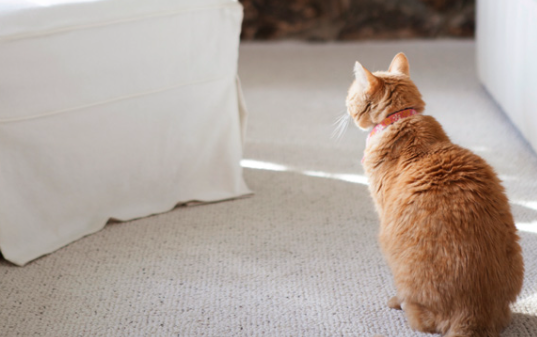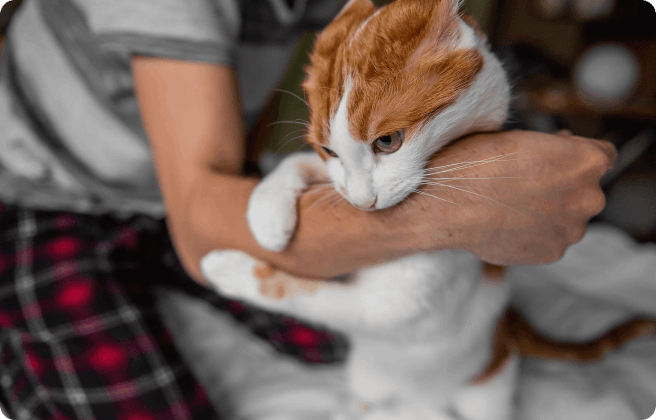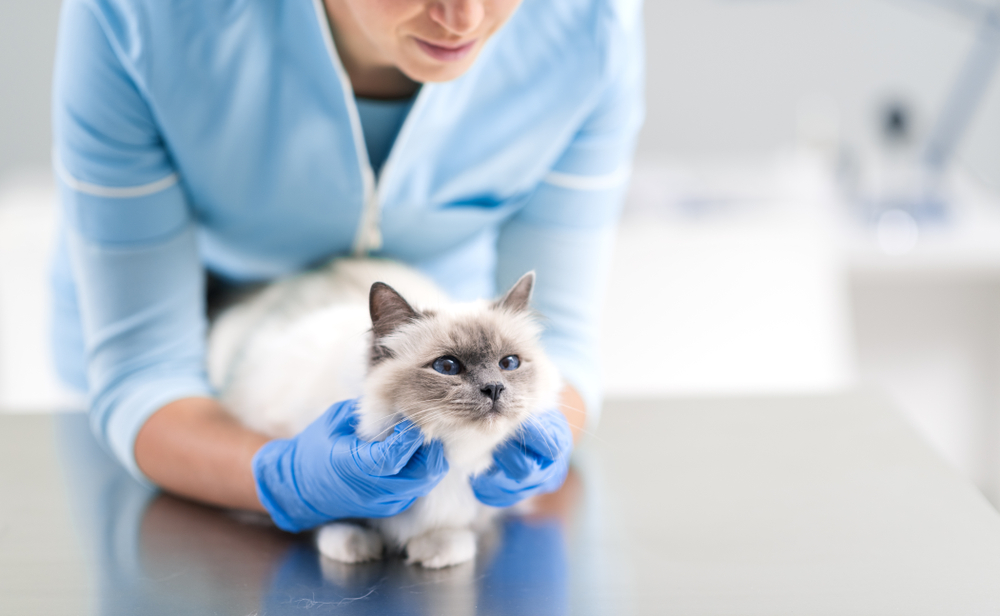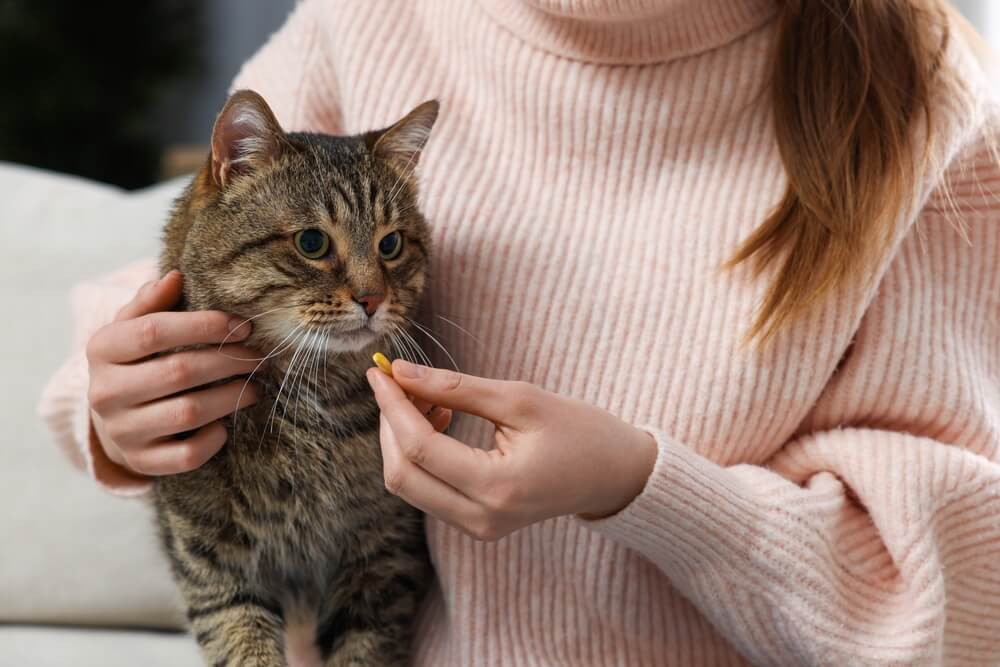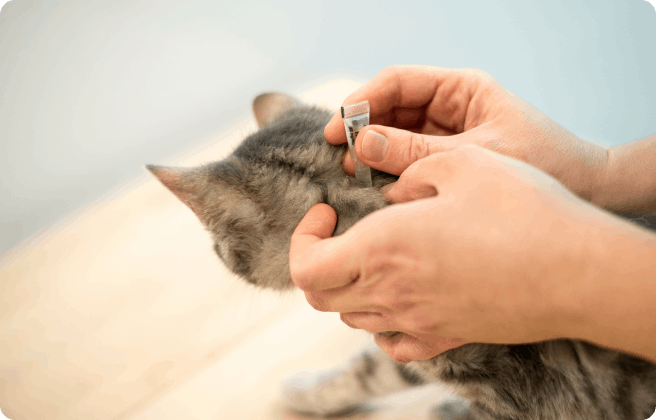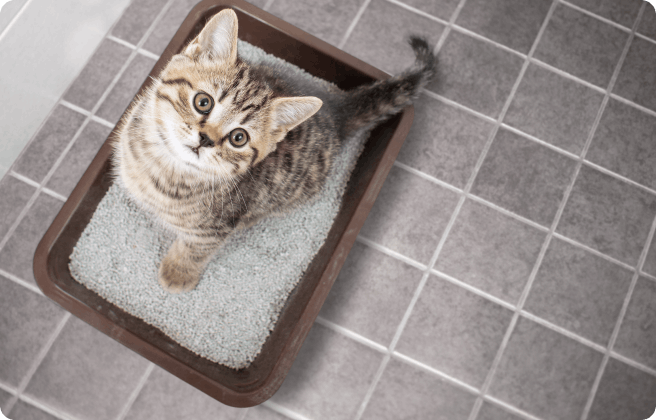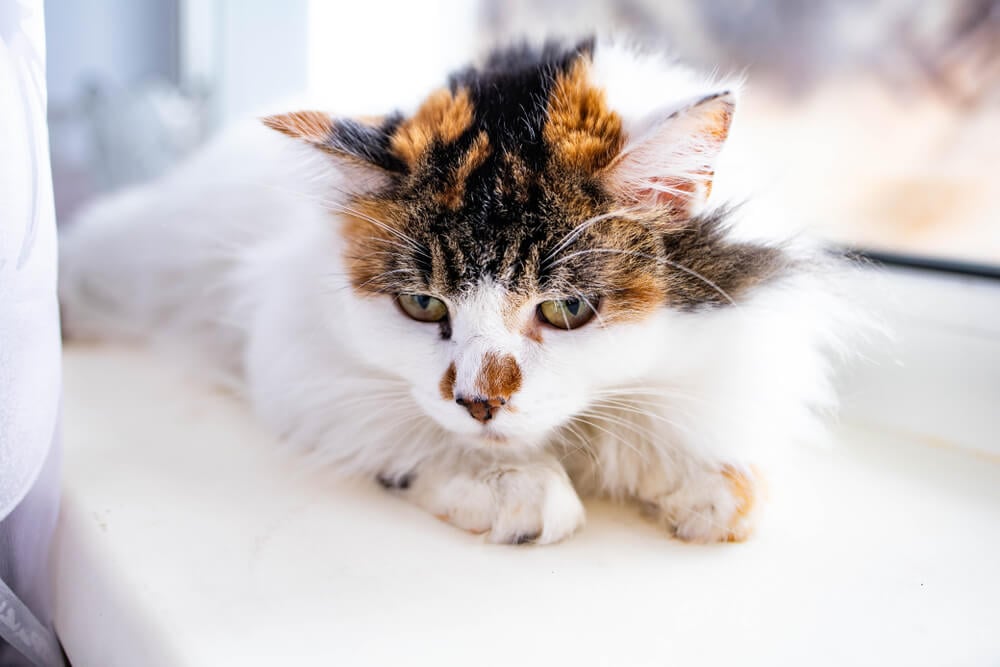
Most headlines you see online regarding cats’ weight involve tips for how to help your cat lose weight. This is because research shows that 61% of America’s domestic cats are overweight 1, and with extra pounds comes an increased risk of health conditions including feline diabetes and heart disease.
Therefore you might be surprised to learn that cats losing weight, or being underweight, is also a common problem (although not as prevalent as obesity in cats), and this is what Cat Food Advisor is exploring in this article.
Why is my cat losing weight?
There could be a number of reasons why your cat is losing weight. You’ll need to get your vet to diagnose the problem before you take any steps towards helping your cat gain weight.
Some of the health conditions that could potentially cause weight loss could include: parasites, hyperthyroidism, diabetes, kidney disease, dental issues or cancer.
If the weight loss is caused by an underlying health issue, your vet will diagnose the problem and discuss a diet plan that’s aimed towards a target weight for your cat. It will include regular check-ups to ensure that your cat is gaining weight and is on the trajectory towards the healthy target.
Weight loss of more than 10% of your cat’s bodyweight can be a cause for concern, so ensuring you keep a close eye on your cat’s weight is crucial. You can buy digital scales to weigh your cat at home regularly to ensure your cat is on the path to weight gain.
Senior cats and weight loss
Senior cats in particular are prone to losing weight. As cats age, especially after the age of 12, they struggle to digest fat and protein as effectively, so if you continue to feed them their regular diet you may find they begin to lose weight. Other issues specifically affecting older cats is degeneration of sight, taste or smell, which can affect how much they eat.
Weigh your senior cat regularly — even just a 5% loss in bodyweight can be a cause for concern.
Ways to increase your cat’s weight
Once you know your cat’s target weight, you can begin to introduce ways to build their weight towards the target.
- One simple way is to increase the number of meals you give them per day. More regular feeding will soon begin to yield results in terms of your cat gaining weight.
- The other option is to leave food out for them all day so they can graze whenever they like. This should be closely monitored, as it can lead to too much weight gain if left for too long. Beware also that raw food should not be left out for too long before it spoils, and certainly not overnight.
- Ensure that other cats or dogs in the house aren’t making your cat scared to eat their food. Sometimes this can be the cause of weight loss and can go unnoticed if you’re the parent of multiple pets. Feed each pet in a separate room, or somewhere safe where they can eat while feeling unthreatened and in a calm, unrushed manner.
- Kibble can be more calorie-dense than wet or raw cat food, so it could be a good idea to swap your cat onto a dry-food diet in order to gain weight. Check calorie and carbohydrate information before feeding, and as with all new foods, transition your cat to this new diet gradually to lower the risk of digestion issues or an allergic reactions, and check with your vet before making any major dietary changes.
- Another way to increase calorie intake is by adding extra treats to your cat’s food, such as cooked chicken or tuna, or simply providing your cat with more regular treats. Your cat is unlikely to turn down some delicious energy-dense treats, and instead of restricting them you can increase the quantity until they begin to gain weight.
- If your cat’s weight is low due to not eating the food you’re providing, you may need to try transitioning them on to a different diet — either a new brand, a different flavor or a different type of food (eg kibble if they currently eat wet food). You could also ask your vet whether supplements or high-calorie toppers are required, as that may also help them gain weight.
- Another option is to feed them kitten food until they’ve returned to their normal weight. Kitten food is more densely packed with carbohydrates and fat to help growing cats gain weight, so usually leads to rapid weight gain for adult cats.
- https://www.petobesityprevention.org/2022 ↩︎
We uphold the highest editorial standards when creating the authoritative content pet parents rely on and trust.
Every piece of clinical content on the Cat Food Advisor is reviewed by our certified Veterinary Advisory Board, which consists of licensed veterinarians and medically certified specialists.
Our reviews are completely independent; we are not paid by any pet food company to promote their products favorably. We do not accept money, gifts, samples or other incentives in exchange for special consideration. For more information see our Disclaimer & Disclosure page.




